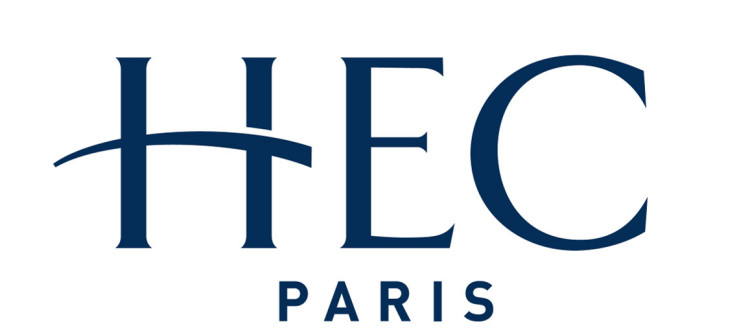- Learning
Can a Masters Be 100% Online?
How HEC’s pioneering 100% online degree is breaking new ground in executive education
A vast array of new online courses, MOOCs, and learning solutions of variable quality have sprung up recently, from a wide variety of providers, old and new. However, what has yet to be established is whether the exemplary learning provided through masters degree programs from the world’s leading institutions can be effectively delivered online. Can the level of quality and the outcome for the candidate compare to a traditional classroom degree?
So this September’s launch of HEC Paris’s 100% online, 11-16 month, On-line Executive Masters in Innovation and Entrepreneurship (MSc), run in collaboration with Coursera, provides unique insight into both the quality and the market potential, and ultimately the future prospects, for this form of elite executive education in a digital world.
Perhaps following Napoleon’s dictum “On s’engage et puis... on voit”, HEC Paris, prompted by Dean Peter Todd, decided not to be a follower in this area but to dive in and be a pioneer. This meant investing considerable resources and expertise into developing a new way of teaching, delivering, and selling programs. Professors were asked to become experts in digital education and teams from across HEC Paris needed to learn to work together on unexplored territory.
In a recent article Professor Marc Vanhuele, who led this project, describes the development process: “Looking back, I must say that we managed to design and launch this degree very quickly: it took under a year from the idea to its lift-off on March 29 2017. You have to understand the sheer size of the project – it involved around 25 faculty members in all. Add to this, the intensive collaborations with the Digital Learning department headed by Vanessa Klein, and you have an idea of the breadth of work this entails.”
This September a diverse cohort of participants – 17 nationalities, with an average age of 38, and a dozen different job functions (two-thirds being managerial) – set out on the first iteration of this exciting program; an initial self-standing Certificate leading on to a full MSc.
Now the program is underway it was instructive to ask Marc Vanhuele about the actual experience – both for the participants and the HEC team.
Why did people sign up for this program? And as a corollary to that: would they have signed up for the program had it been classroom-based?
First, all the candidates were budding entrepreneurs or intrapreneurs and HEC Paris’s reputation as a global centre for entrepreneurship and innovation was a prime magnet. (Also, entrepreneurial types are perhaps by definition more likely than most to try an innovative new approach.)
Secondly, geography and time were major factors. Most of these candidates would not have signed up for a classroom-based degree program. Technology – the online aspect – was not seen as a draw. Vanhuele says that typically candidates saw ‘online’ as second-best, but necessary for logistical reasons.
How have participants and faculty found the experience?
Vanhuele is adamant – second-best it isn’t. He and his team are confident that the quality of the teaching, the pedagogy, the access to faculty and the overall learning experience matches that of any equivalent degree program. The obvious question however is about making it human.
Using a ‘Skype like’ interface participants have regular direct group and one-to-one contact with faculty. Participant are grouped and each is assigned coaches and a mentor (an experienced entrepreneur). Up to now this is working well, however, participants have not yet entered the final section of the degree where they will pitch their ideas to be selected by their group to be developed into a full innovative or start-up proposal. Here the program developers are innovating as they go – considering questions such as how age differences might affect the dynamic within groups.
So far, the participants have only consistently raised one issue – perhaps surprisingly as applicants to a 100% online program but certainly understandable – they want to be more connected to the wider HEC Paris community. The solution to this, that Vanhuele’s team is working on, is to provide streaming of campus events and to organize a series of regional, non-compulsory, networking get-togethers where students can meet faculty and peers.
With the proliferation of MOOCs and B2C online courses offering bits and pieces of executive learning it is important to remember an online degree program such as HEC Paris’ MSc is in a different league.
Masters programs are aimed at committed people, prepared to take time (in this case 10 hours of study a week for up to 16 months), undergo examination, and pay several thousand dollars for the privilege. Here the means of delivery – classroom or online – is not the key issue. Outcome is all important. The certificate and degree finally awarded is a measure of the knowledge gained as recognised by the awarding body, and the degree’s final value has to be equivalent to any other – online or classroom based – awarded by a comparable leading University. This degree can truly transform a person’s career.
The good news for HEC Paris is that, so far, their On-line Executive Masters in Innovation and Entrepreneurship (MSc), appears to be on course to meet this aim. If it does and HEC Paris succeeds, and maybe moves on to cover other subject areas, this is also good news for the future provision of world-class executive education generally. The potential this may offer for opening up the market for high-level degree programs to a wide range of talented individuals, previously limited by time and geography, is very exciting indeed.
Read Professor Marc Vanhuele’s recent article: Meeting the Architect of HEC’s First-ever 100% Online Degree
Also see this previous article from IEDP: Leading Innovation and Entrepreneurship
ARTICLES YOU MIGHT LIKE
VIEWPOINT
For Thomas Misslin, transformation rather than training is the aim of executive education at emlyon business school
DEVELOPING LEADERS QUARTERLY MAGAZINE AND WEEKLY BRIEFING EMAILS


































